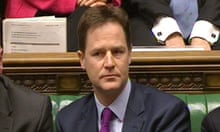Today parliament debates the government’s recall of elected representatives bill, which would allow voters to force a byelection if they were unhappy with their MP.
Some supporters of recall are unhappy that the bill doesn’t go far enough. It would allow an MP to be recalled if he or she was convicted of an offence and received a sentence of less than 12 months (MPs are already disqualified from parliament if they are jailed for longer than 12 months). But many want to be able to sack MPs between general elections “for whatever reason if the majority have lost confidence in them” – to quote their leader, the millionaire Tory MP Zac Goldsmith. If 20% of voters sign a petition an MP would be sacked and a byelection held, with no provision for the rest of the electorate to block the recall process.
In my view, far from empowering the electorate this system would be open to abuse by powerful vested interests and most likely deployed to hinder social progress. Much of the social and political progress we enjoy today sprang from the work of MPs who were attacked and vilified when they first campaigned for the laws and attitudes from which we now benefit. When such MPs argued against the conventional wisdom, the powerful reactionary forces ranged against them didn’t stop at attacking the reformers’ arguments; their opposition was often coupled with personal abuse and smears.
A recall law would leave principled MPs vulnerable. We need a system that rewards rather than punishes such commitment.
My own constituency provides a good example. No, not me. My predecessor Lena Jeger campaigned for many years for changes which were then unpopular. She was a sponsor of the private member’s bill that became the 1967 Abortion Act. Her constituents were predominantly Roman Catholic. If there had been a recall law then, it would have been very easy for opponents of abortion law reform to muster the required number of petitioners to “punish” her.
Similar campaigns could have been mounted against MPs who advocated equal pay and equal rights for women, who sought to outlaw racial discrimination, argued for the abolition of capital punishment, promoted gay rights or, depending on the constituency, voted for or against the hunting ban. Recall of MPs could have deterred many from sticking their necks out.
Some of my constituents have asked what should have happened to MPs caught in the expenses scandal? A fair point, but it’s a fact that scarcely any of them survived the subsequent general election of 2010. A few were jailed and most of the rest were dropped by their party. In an era of instant gratification, that may seem rather slow, but we should bear in mind the old saying “revenge is a dish best served cold”.
As well as the jail sentence, the government’s bill applies the recall procedure to MPs who are suspended by the House of Commons for more than 21 days. This trigger bothers me even more. The bill neither specifies the misconduct for which an MP might be suspended, nor puts in place any quasi-judicial process for arriving at such a judgment. A case might be considered carefully by a committee but the final vote would follow a debate on the floor of the house – the product of a party-political and news media campaign. To describe such a debate as a kangaroo court would be an insult to kangaroos.
The recall campaign arises at a time when the concept of representative government is challenged by the way the communications revolution has widened the scope for direct democracy. But representative democracy is what we‘ve got. So I find it ironic that many Tories support the recall idea while claiming themselves to be followers of Edmund Burke, the philosophical father of conservatism. He was the man who told the electors of Bristol that, as their representative, he betrayed them rather than served them if he sacrificed his judgment to their opinions.
Recall won’t affect me as I am not standing at the coming general election – and no one challenged my expenses. I am convinced that recall will not achieve what many of its decent supporters wish for. Instead, it will prove counterproductive by massively strengthening the hand of rich individuals and pressure groups, vindictive newspaper campaigns or equally unprincipled social media targeting. The wealthy and the powerful media already have too much influence in our political system. I do not want to strengthen their position.



